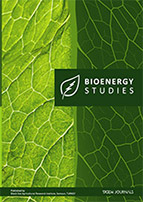Turkish Journal of Fisheries and Aquatic Sciences
2018, Vol 18, Num, 6 (Pages: 761-769)
Gillnet Selectivity for Ethmalosa fimbriata in Saloum Delta and Joal (Senegal)
2 Department of Fisheries, University of Rhode Island, 40A Est Farm Road, Building 83, Kingston, RI 02881, USA DOI : 10.4194/1303-2712-v18_6_02 Viewed : 3944 - Downloaded : 2682 In this study, a total of 64 fishing attempts was performed and a total of 17775 specimens was caught. The indirect method of Holt (1963) was used to estimate the selectivity parameters. The optimum selection lengths for E. fimbriata in 30, 32, 36 and 40 mm mesh size were 17.32, 18.48, 20.79 and 21.10 cm, respectively. Estimated values of common selection factor and standard deviation were 5.77 and 1.48, respectively. Results indicated that using monofilament gillnets with 30 and 32 mm mesh size could have an increasing fishing pressure on juvenile population of E. fimbriata but also the use of 40 mm mesh size could affect most fertile females. For the sustainable conservation of E. fimbriata fishery, it can be suggested to use monofilament gillnet with 36 mm mesh size in Senegalese coastal and estuarine waters. Keywords : Monofilament, fishery, mesh sizes, standard deviation, selection factor
















